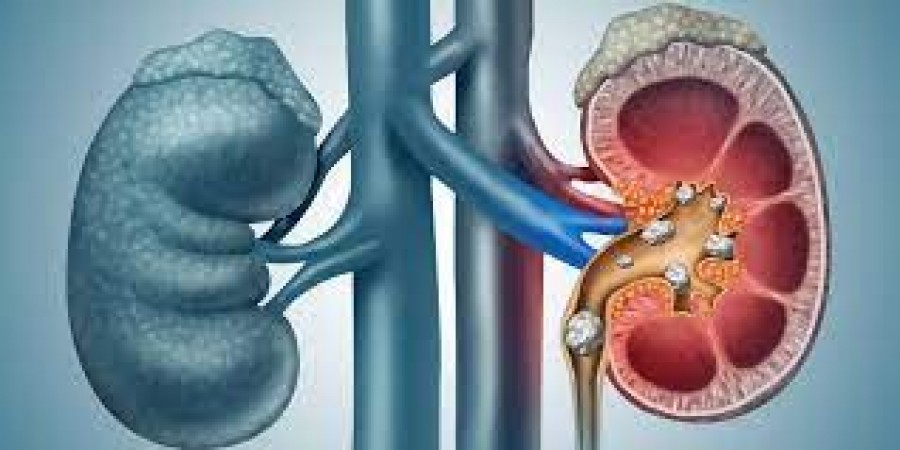
Kidney stones, though small, can wreak havoc on your well-being. Recognizing the subtle symptoms is pivotal for early detection and effective management. Let's delve into the intricate world of kidney stone indicators, exploring each facet to empower you with knowledge and awareness.
The journey begins with fluctuating flank pain, a hallmark symptom of kidney stones. This discomfort, often described as sharp and intermittent, emanates from the side of the abdomen where the kidneys reside. Understanding the nuances of this pain can provide crucial insights into the potential presence of a kidney stone.
The pain may vary in intensity, catching individuals off guard with its sporadic nature. It's essential to pay attention to the patterns, duration, and any exacerbating factors associated with flank pain.
Moving beyond the side, kidney stones may manifest as back pain, specifically in the lower back. This persistent discomfort can be perplexing, leading individuals to explore potential causes. Exploring the intricacies of this back pain is paramount for a comprehensive understanding of kidney stone symptoms.
Kidney stones don't limit their impact to the back; they often cause radiating abdominal pain. This discomfort extends from the sides to the lower abdomen and even the groin area. Recognizing the radiation patterns can aid in narrowing down the potential causes of abdominal pain.
A concerning sign that warrants immediate attention is hematuria, the presence of blood in the urine. The sight of discolored urine can be alarming, prompting individuals to seek medical advice promptly.
Delving deeper into hematuria, let's unravel its implications, causes, and the urgency it demands. Hematuria isn't just a visual cue; it's a significant indicator of potential kidney stone issues.
Kidney stones may subtly impact urinary patterns, leading to a frequent urge to urinate. Understanding these changes and their implications is crucial for timely intervention.
Beyond frequency, changes in the color of urine can be indicative of kidney stone issues. From pinkish to brown hues, deciphering these variations is essential for a comprehensive assessment of kidney health.
The complexity of kidney stones extends to alterations in urine clarity and odor. Recognizing these changes can contribute to a more accurate diagnosis.
Navigating the intricacies of urinary changes, let's unravel what different patterns signify in the context of kidney stones. Each change in urine can provide valuable information for healthcare professionals.
Moving beyond urinary symptoms, kidney stones may induce feelings of nausea and lead to vomiting. This physical response adds another layer to the multifaceted nature of kidney stone symptoms.
In some cases, kidney stones trigger an inflammatory response, leading to fever and chills. Recognizing these systemic symptoms is vital for a comprehensive assessment of kidney stone-related issues.
A subtle yet significant symptom is the discomfort or pain experienced during urination. This discomfort, often overlooked, can provide valuable insights into kidney health.
Kidney stones may increase the risk of urinary tract infections (UTIs). Understanding the signs of a UTI can aid in early intervention, preventing complications.
Let's explore the intricate relationship between kidney stones and urinary tract infections. The interplay between these two conditions underscores the importance of a comprehensive approach to symptom assessment.
Excessive sweating, unrelated to physical exertion or environmental factors, might be a symptom that warrants investigation. Understanding the association between sweating and kidney stones is crucial for a nuanced approach to symptom evaluation.
The discomfort caused by kidney stones can lead to restlessness and difficulty finding a comfortable position. This aspect, often overlooked, significantly impacts an individual's daily activities.
Persistent fatigue without apparent cause could be indicative of an underlying health issue, including kidney stones. Exploring the connection between fatigue and kidney stones sheds light on the broader impact of these small but troublesome formations.
Kidney stones may cause abdominal swelling and discomfort, adding another layer to the array of potential symptoms. Understanding the implications of abdominal symptoms is crucial for a holistic approach to symptom assessment.
Let's unravel the complexities of abdominal symptoms associated with kidney stones. Abdominal discomfort goes beyond mere pain, encompassing a range of sensations that can provide valuable diagnostic clues.
The unpredictable nature of kidney stone pain often involves sudden, sharp waves of discomfort. Understanding the characteristics of this pain is pivotal for accurate diagnosis and effective pain management.
Discomfort in the groin area, coupled with other symptoms, might signal the presence of a kidney stone. Exploring the relationship between groin pain and kidney stones contributes to a more nuanced understanding of these symptoms.
Men experiencing testicular pain should consider the possibility of kidney stones, as the two can be interconnected. Understanding the links between testicular pain and kidney stones is crucial for a comprehensive evaluation of symptoms.
While seeking professional medical advice is paramount, here are some practical measures for alleviating kidney stone-related pain. These strategies aim to provide temporary relief while awaiting professional intervention.
Explore effective strategies for managing kidney stone pain at home. From hydration to hot compresses, these tips can offer relief in the midst of discomfort.
If you resonate with these symptoms, consulting a healthcare professional is imperative. Early diagnosis and intervention can make a significant difference in managing kidney stones. Understanding when to seek professional help is crucial for timely and effective treatment. In conclusion, understanding the signs associated with kidney stones empowers individuals to take proactive steps towards their health. Stay vigilant, listen to your body, and prioritize your well-being. The intricate interplay of symptoms paints a comprehensive picture, guiding individuals on the path to early detection and intervention.
Jakson Green to Ship First Green Hydrogen Electrolyser in 2024-Starts
PM Modi Reflects on India’s 2023 Achievements, Sets Goals for 2024
BSF Thwarts Drone Threat: Downed 100+ Drones, Apprehended 37 Smugglers in 2023